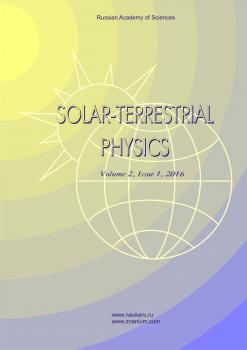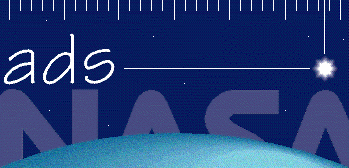Геофизический центр РАН
Москва, Россия
с 01.01.2003 по настоящее время
Центр физико-технических проблем энергетики Севера КНЦ РАН (Научный сотрудник)
Геофизический центр РАН
Апатиты, Мурманская область, Россия
Институт физики Земли им. О.Ю. Шмидта РАН
Геофизический Центр РАН
Москва, Россия
Апатиты, Мурманская область, Россия
We analyze variations in geomagnetically induced currents (GIC) and pulsations of the geomagnetic field latitudinal By component in the frequency range 1–20 mHz. The analysis is based on the data from GIC registration at the Kola Peninsula and magnetic data from IMAGE network stations, obtained with 10 s sampling in 2017. This allows us to include pulsations of both Pc5/Pi3 and Pc4/Pi2 frequency range in the analysis and examine polyharmonic pulsations with spectral maxima in both ranges. It is shown that GICs are effectively generated at frequencies above 5 mHz. Polyharmonic pulsations are potentially more dangerous than monoharmonic ones because the ratio of GIC to magnetic field pulsations’ amplitude is higher and the lifetime of unipolar GIC is longer.
space weather, geomagnetic pulsations, geomagnetically induced currents
1. Apatenkov S.V., Sergeev V.A., Pirjola R., Viljanen A. Evaluation of the geometry of ionospheric current systems related to rapid geomagnetic variations. Ann. Geophys. 2004, vol. 22, pp. 63–72. DOI:https://doi.org/10.5194/angeo-22-63-2004.
2. Barannik M.B., Danilin A.N., Kat’kalov Y.V., Kolobov V.V., Sakharov Y.A., Selivanov V.N. A system for recording geomagnetically induced currents in neutrals of power autotransformers. Instrum. Exp. Tech. 2012, vol. 55, pp. 110–115. DOI:https://doi.org/10.1134/S0020441211060121.
3. Baransky L.N, Fedorov E.N, Kurneva N.A., Pilipenko V.A., Green A.W., Worthington E.W. Gradient and polarization methods of the ground-based hydromagnetic monitoring of magnetospheric plasma. J. Geomagn. Geolect. 1995, vol. 47, pp. 1293–1309.
4. Bedrosian P.A., Love J.J. Mapping geoelectric fields during magnetic storms: Synthetic analysis of empirical United States impedances. Geophys. Res. Lett. 2015, vol. 42, pp. 10160–10170. DOI:https://doi.org/10.1002/2015GL066636.
5. Boteler D.H. A 21st century view of the March 1989 magnetic storm. Space Weather. 2019, vol. 17, pp. 1427–1441. DOI:https://doi.org/10.1029/2019SW002278.
6. Boteler D.H., Pirjola R.J. Modeling geomagnetically induced currents. Space Weather. 2017, vol. 15, pp. 258–276. DOI:https://doi.org/10.1002/2016SW001499.
7. Cherevatova M., Smirnov M.Yu., Korja T., Pedersen L.B., Ebbing J., Gradmann S., Becken M. Electrical conductivity structure of north-west Fennoscandia from three-dimensional inversion of magnetotelluric data. Tectonophysics. 2015, vol. 653, pp. 20–32. DOI:https://doi.org/10.1016/j.tecto.2015.01.008.
8. Fukunishi H., Lanzerotti L.J. ULF pulsation evidence of the plasmapause: 1. Spectral studies of Pc3 and Pc4 pulsations near L=4. J. Geophys. Res. 1974, vol. 79, iss. 1, pp. 142–158. DOI:https://doi.org/10.1029/JA079i001p00142.
9. Gannon J.L., Birchfield A.B., Shetye K.S., Overbye T.J. A comparison of peak electric fields and GICs in the Pacific Northwest using 1-D and 3-D conductivity. Space Weather. 2017, vol. 15, pp. 1535–1547. DOI:https://doi.org/10.1002/2017SW001677.
10. Greenstadt E.W., Singer H.J., Russell C.T., Olson J.V. IMF orientation, solar wind velocity, and Pc3-4 signals: A joint distribution. J. Geophys. Res. 1979, vol. 84, iss. A2, pp. 527–532. DOI:https://doi.org/10.1029/JA084iA02p00527.
11. Guglielmi A.V., Troitskaya V.A. Geomagnitnye pul’satsii i diagnostika magnitosfery [Geomagnetic Pulsations and Diagnostics of the Magnetosphere]. Moscow, Nauka Publ., 1973, 208 p. (In Russian).
12. Gusev Y.P., Lkhamdondog A., Monakov Y.V., Yagova N.V., Pilipenko V.A. Evaluating the effect of geoinduced currents on the startup modes of power transformers. Power Technol. Eng. 2020a, vol. 54, pp. 285–290. DOI:https://doi.org/10.1007/s10749-020-01202-1.
13. Gusev Y.P., Lkhamdondog A., Monakov Y.V., Yagova N.V. Sign-constant current influence on flux linkage balance of power transformer’s primary and secondary winding. Releinaya zashchita i avtomatozatsiya [Relay protection and automation]. 2020b, iss. 2 (39), pp. 20–25. (In Russian).
14. Hartinger M.D., Shi X., Lucas G.M., Murphy B.S., Kelbert A., Baker J.B.H., et al. Simultaneous observations of geoelectric and geomagnetic fields produced by magnetospheric ULF waves. Geophys. Res. Lett. 2020, vol. 47, iss. 18, E2020GL089441. DOI:https://doi.org/10.1029/2020GL089441.
15. Hartinger M.D., Shi X., Rodger C.J., Fujii I., Rigler E.J., Kappler K., et al. Determining ULF wave contributions to geomagnetically induced currents: The important role of sampling rate. Space Weather. 2023, vol. 21, iss. 5, E2022SW003340. DOI:https://doi.org/10.1029/2022SW003340.
16. Heyns M.J., Lotz S.I., Gaunt C.T. Geomagnetic pulsations driving geomagnetically induced currents. Space Weather. 2021, vol. 19, iss. 2, E2020SW002557. DOI:https://doi.org/10.1029/2020SW002557.
17. Howard T.A., Menk F.W. Ground observations of high-latitude Pc3-4 ULF waves. J. Geophys. Res. 2005, vol. 110, iss. A4, A04205. DOI:https://doi.org/10.1029/2004JA010417.
18. Jenkins G., Watts D. Spectral analysis and its applications. San Francisco, London, Amsterdam, Holden-Day, 1969, 525 p.
19. Juusola L., Vanhamäki H., Viljanen A., Smirnov M. Induced currents due to 3D ground conductivity play a major role in the interpretation of geomagnetic variations. Ann. Geophys. 2020, vol. 38, pp. 983–998. DOI:https://doi.org/10.5194/angeo-38-983-2020.
20. Kataoka R., Pulkkinen A. Geomagnetically induced currents during intense storms driven by coronal mass ejections and corotating interacting regions. J. Geophys. Res. 2008, vol. 113, iss. A3, A03S12. DOI:https://doi.org/10.1029/2007JA012487.
21. Lee L.C., Olson J.V. Kelvin-Helmholtz instability and the variation of geomagnetic pulsation activity. Geophys. Res. Lett. 1980, vol. 7, pp. 777–780. DOI:https://doi.org/10.1029/GL007i010p00777.
22. Lifshicz A.E, Fedorov E.N. Hydromagnetic oscillations of the magnetosphere-ionosphere resonator. Doklady AN SSSR [Reports of the USSR Academy of Sciences]. 1986, vol. 287, pp. 90–95. (In Russian.)
23. Lotz S.I., Danskin D.W. Extreme value analysis of induced geoelectric field in South Africa. Space Weather. 2017, vol. 15, iss. 10, pp. 1347–1356. DOI:https://doi.org/10.1002/2017SW001662.
24. Love J.J., Coisson P., Pulkkinen A. Global statistical maps of extreme-event magnetic observatory 1 min first differences in horizontal intensity. Geophys. Res. Lett. 2016, vol. 43, iss. 9, pp. 4126–4135. DOI:https://doi.org/10.1002/2016GL068664.
25. Love J.J., Lucas G.M., Rigler E.J., Murphy B.S., Kelbert A., Bedrosian P.A. Mapping a magnetic superstorm: March 1989 geoelectric hazards and impacts on United States power systems. Space Weather. 2022, vol. 20, e2021SW003030. DOI:https://doi.org/10.1029/2021SW003030.
26. Marshall R.A., Dalzell M., Waters C.L., Goldthorpe P., Smith E.A. Geomagnetically induced currents in the New Zealand power network. Space Weather. 2012, vol. 10, S08003. DOI:https://doi.org/10.1029/2012SW000806.
27. Motoba T., Takahashi K., Rodriguez J.V., Russell C.T. Giant pulsations on the afternoonside: Geostationary satellite and ground observations. J. Geophys. Res.: Space Phys. 2015, vol. 120, pp. 8350–8367. DOI:https://doi.org/10.1002/2015JA021592.
28. Nakamura S., Ebihara Y., Fujita S., Goto T., Yamada N., Watari S., Omura Y. Time domain simulation of geomagnetically induced current (GIC) flowing in 500-kV power grid in Japan including a three-dimensional ground inhomogeneity. Space Weather. 2018, vol. 16, pp. 1946–1959. DOI: 10.1029/ 2018SW002004.
29. Nosé M., Liou K., Sutcliffe P.R. Longitudinal dependence of characteristics of low-latitude Pi2 pulsations observed at Kakioka and Hermanus. Earth Planet Space. 2006, vol. 58, pp. 775–783. DOI:https://doi.org/10.1186/BF03351981.
30. Pilipenko V., Kozyreva O., Hartinger M., Rastaetter L., Sakharov Ya. Is the global MHD modeling of the magnetosphere adequate for GIC prediction: the May 27–28, 2017 storm. Cosmic Res. 2023, vol. 61, pp. 120–132. DOI:https://doi.org/10.1134/S0010952522600044.
31. Pulkkinen A., Lindahl S., Viljanen A., Pirjola R. Geomagnetic storm of 29–31 October 2003: Geomagnetically induced currents and their relation to problems in the Swedish high-voltage power transmission system. Space Weather. 2005, vol. 3, S08C03. DOI:https://doi.org/10.1029/2004SW000123.
32. Pulkkinen A., Klimas A., Vassiliadis D., Uritsky V., Tanskanen E. Spatiotemporal scaling properties of the ground geomagnetic field variations. J. Geophys. Res. 2006, vol. 111, A03305. DOI: 10.1029/ 2005JA011294.
33. Pulkkinen A., Pirjola R., Viljanen A. Statistics of extreme geomagnetically induced current events. Space Weather. 2008, vol. 6, S07001. DOI:https://doi.org/10.1029/2008SW000388.
34. Sakharov Y.A., Yagova N.V., Pilipenko V.A. Pc5/Pi3 geomagnetic pulsations and geomagnetically induced currents. Bull. Russian Acad. Sci. Phys. 2021, vol. 85, pp. 329–333. DOI:https://doi.org/10.3103/S1062873821030217.
35. Sakharov Ya.A., Yagova N.V., Pilipenko V.A., Selivanov V.N. Spectral content of Pc5–6/Pi3 geomagnetic pulsations and their efficiency in generation of geomagnetically induced currents. Russ. J. Earth. Sci. 2022, vol. 22, ES1002. DOI:https://doi.org/10.2205/2021ES000785.
36. Sakharov Ya.A., Yagova N.V., Bilin V.A., Selivanov V.N., Aksenovich T.V., Pilipenko V.A. Parameters influencing the efficiency of generation of geomagnetically induced currents by nonstorm Pc5–6/Pi3 geomagnetic pulsations. Bull. Russian Acad. Sci. Phys. 2024, vol. 88, pp. 289–295. DOI:https://doi.org/10.1134/S1062873823705421.
37. Schillings A., Palin L., Opgenoorth H.J., Hamrin M., Rosenqvist L., Gjerloev J.W., Juusova L., Barnes R. Distribution and occurrence frequency of dB/dt spikes during magnetic storms 1980–2020. Space Weather. 2022, vol. 20, E2021SW002953. DOI: 10.1029/ 2021SW002953.
38. Tanskanen E.I. A comprehensive high-throughput analysis of substorms observed by IMAGE magnetometer network: Years 1993–2003 examined. J. Geophys. Res. 2009, vol. 114, A05204. DOI:https://doi.org/10.1029/2008JA013682.
39. Tasistro-Hart A., Grayver A., Kuvshinov A. Probabilistic geomagnetic storm forecasting via deep learning. J. Geophys. Res.: Space Phys. 2021, vol. 126, E2020JA028228. DOI: 10.1029/ 2020JA028228.
40. Temerin M., Li X. Dst model for 1995–2002. J. Geophys. Res. 2006, vol. 111, A04221. DOI:https://doi.org/10.1029/2005JA011257.
41. Trichtchenko L. Frequency considerations in GIC applications Space Weather. 2021, vol. 19, E2020SW002694. DOI:https://doi.org/10.1029/2020SW002694.
42. Wang G.Q., Volwerk M., Zhang T.L., Schmid D., Yoshikawa A. High-latitude Pi2 pulsations associated with kink-like neutral sheet oscillations. J. Geophys. Res.: Space Phys. 2017, vol. 122, pp. 2889–2899. DOI:https://doi.org/10.1002/2016JA023370.
43. Wik M., Viljanen A., Pirjola R., Pulkkinen A., Wintoft P., Lundstedt H. Calculation of geomagnetically induced currents in the 400 kV power grid in southern Sweden. Space Weather. 2008, vol. 6, S07005. DOI: 10.1029/ 2007SW000343.
44. Yagova N.V., Pilipenko V.A., Sakharov Y.A., Selivanov V.N. Spatial scale of geomagnetic Pc5/Pi3 pulsations as a factor of their efficiency in generation of geomagnetically induced currents. Earth Planets Space. 2021, vol. 73, art. no. 88. DOI:https://doi.org/10.1186/s40623-021-01407-2.
45. Yumoto K., Osaki H., Fukao K., Shiokawa K., Tanaka Y., Solovyev S.I., Krymskij G., Vershinin E.F., Osinin V.F. and 210 MM Magnetic Observation Group. Correlation of high- and low-latitude Pi2 magnetic pulsations observed at 210 magnetic meridian chain stations. J. Geomagn. Geoelectr. 1994, vol. 46, pp. 925–935. DOI:https://doi.org/10.5636/jgg.46.925.
46. Zhang T., Ebihara Y. Superposed epoch analyses of geoelectric field disturbances in Japan in response to different geomagnetic activities. Space Weather. 2022, vol. 20, E2021SW002893. DOI:https://doi.org/10.1029/2021SW002893.





















